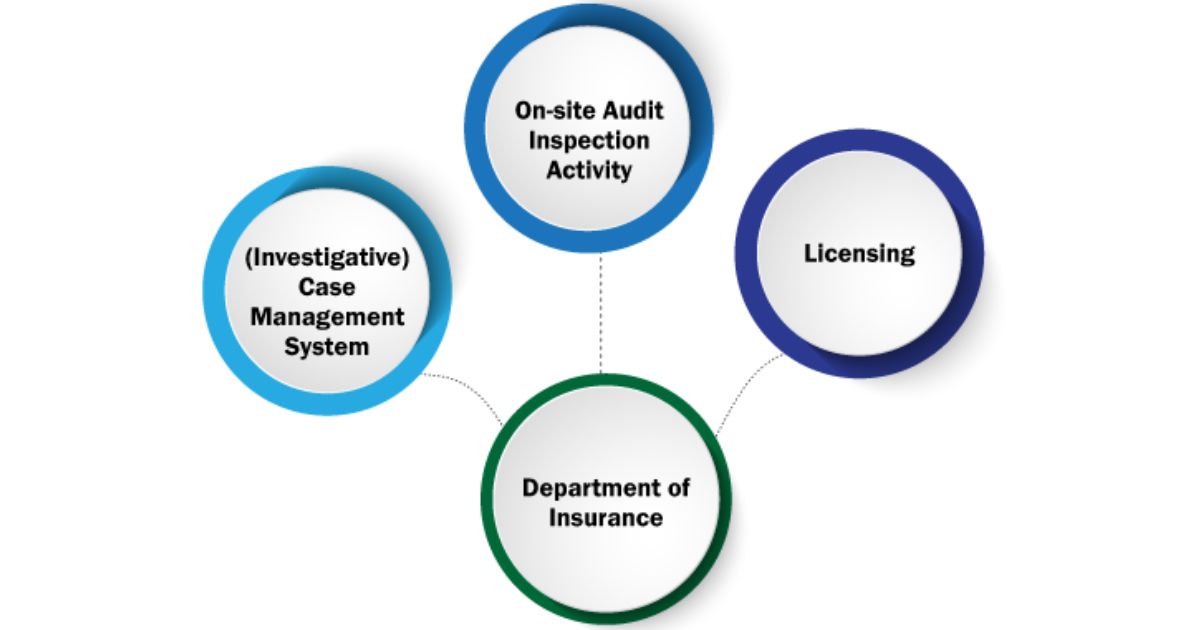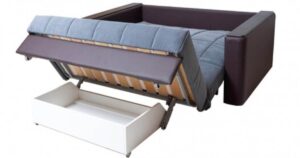Starting a chair and table rental business may seem daunting, but with the right knowledge and planning, it can be a lucrative venture. Many may argue that the market is saturated, but there are still opportunities for success.
This article will provide practical and detailed steps on how to enter the table and chair rental market, including researching the market, writing a business plan, and investing in necessary equipment. By following these guidelines, you can confidently launch and grow your own rental business.
Key Takeaways
- Thorough market research is essential to identify customer needs, preferences, and gaps in the market.
- Offering a variety of rental options, customization, and delivery/setup services can enhance the appeal of the business.
- Developing a solid business plan with an executive summary, market analysis, and marketing strategies is crucial for success.
- Ensuring legal compliance, obtaining necessary permits/licenses, and having clear rental agreements are important for a smooth operation.
Know Your Market

Understanding the target demographic is crucial when starting a chair and table rental business. Before launching your business, it is important to conduct thorough market research to identify the specific needs and preferences of your potential customers.
Identifying your target market is crucial when setting up a furniture rental business. Whether it’s individuals hosting parties and events, wedding planners, or corporate event organizers, you need to have a clear understanding of your potential customers. Take into account factors such as location, income level, and event size to tailor your offerings accordingly.
It’s important to be aware of the specific requirements of your clients, such as whether they need a variety of chairs and tables, including banquet chairs or cocktail tables. Furthermore, ensuring that your dental chair is in the supine position is essential for providing the best service to clients who may require specific seating arrangements for their events.
Research your competitors to identify any gaps in the market that you can exploit. By knowing your market inside out, you can position your chair and table rental business for success and meet the needs of your customers effectively.
Decide on Services
The services offered by a chair and table rental business are crucial for meeting the diverse needs of customers. When deciding on the services to offer, it is important to consider the specific requirements of your target market. Here are three key services that a chair and table rental business should consider:
- Rental of different types of chairs and tables, including banquet chairs, folding chairs, and cocktail tables. Offering a variety of options allows customers to choose the most suitable furniture for their event.
- Delivery and setup services to provide convenience for customers. This includes transporting the furniture to the event venue and arranging it according to the customer’s specifications.
- Customization options, such as chair covers, table linens, and centerpieces, to enhance the overall aesthetic of the event.
Write a Business Plan
Developing a solid business plan is essential for the success of a chair and table rental business. A well-crafted business plan serves as a roadmap, outlining your goals, strategies, and financial projections. It provides a clear direction and helps you make informed decisions as you navigate the challenges of starting and running your business.
When writing your business plan, start with an executive summary that succinctly describes your business, target market, and competitive advantage. Include a comprehensive market analysis that identifies your target customers and competitors. Outline your marketing and sales strategies, detailing how you will promote your services and attract customers. Include a detailed financial plan, including startup costs, revenue projections, and cash flow analysis.
Remember to include contingency plans and discuss potential risks and challenges. Your business plan should be regularly reviewed and updated as your business evolves. It is a crucial document that will not only guide your decision-making process but also attract investors and lenders who may provide the necessary funding to launch and grow your chair and table rental business.
Investigate Licensing and Insurance Requirements

To ensure compliance with legal regulations, you must investigate the licensing and insurance requirements for your chair and table rental business. This step is crucial to protect yourself, your business, and your customers. Here are some important considerations:
- Licensing: Check with your local government or licensing agency to determine if you need any specific permits or licenses to operate a rental business. This may include general business licenses, permits for specific events or venues, or other industry-specific licenses.
- Insurance: Obtain adequate insurance coverage to protect your business from potential liability claims. Consider getting general liability insurance, which can cover property damage or injuries that may occur during the rental period. You may want to explore options for business property insurance to protect your assets.
- Contractual Agreements: Develop clear and comprehensive rental agreements that outline the terms and conditions of renting your chairs and tables. This will help protect both parties involved and ensure a smooth rental process.
Purchase Tables and Chairs to Rent
After conducting thorough market research and assessing customer demand, consider partnering with reputable suppliers and purchasing high-quality tables and chairs to rent for your chair and table rental business. When purchasing tables and chairs, it is essential to prioritize durability, comfort, and aesthetic appeal.
Look for suppliers who offer a wide range of options to cater to different event styles and themes. Ensure that the tables and chairs are made from sturdy materials that can withstand regular use and transportation. Consider investing in stackable chairs and foldable tables to optimize storage space and ease of transportation.
Prioritize comfort by selecting chairs with cushioning and ergonomic designs. Finally, choose tables and chairs that are visually appealing and complement various event settings. By investing in high-quality tables and chairs, you can provide your customers with reliable and attractive rental options.
How to Start a Party Rental Business With Just $500
Starting a party rental business with just $500 can be a cost-effective way to enter the industry and provide rental services for various events. Here are three steps to help you get started:
- Research and choose your niche: Determine the specific types of party rentals you want to offer, such as bounce houses, tables and chairs, or sound systems. Research the demand and competition in your area to find a profitable niche.
- Buy essential equipment: With a limited budget, focus on purchasing the most essential items first. Start with a few high-quality, versatile pieces that can be used for different events. Consider buying used equipment to save money.
- Create a marketing plan: Utilize low-cost marketing strategies like social media, flyers, and word-of-mouth to promote your business. Develop a website or create a social media page to showcase your rental offerings and provide contact information.
Next Steps
In order to expand your chair and table rental business, you should consider diversifying your inventory and expanding your target market. Diversifying your inventory means offering a wider range of chair and table options to cater to different customer needs.
This could include different styles, materials, and sizes. By expanding your target market, you can reach a larger audience and increase your customer base. Consider targeting not only individuals planning events, but also businesses, schools, and organizations that may need rental furniture for conferences, meetings, or other functions.
Invest in marketing strategies such as social media advertising, attending industry trade shows, and partnering with event planners or wedding venues to increase your visibility and attract more customers. By taking these next steps, you can successfully grow your chair and table rental business.
Preparing to Start a Table and Chair Rental Business
To ensure a successful launch, carefully plan and organize the necessary resources for your table and chair rental business. Here are some practical steps to get started:
- Conduct market research to identify your target audience and competition.
- Develop a business plan outlining your goals, target market, pricing strategy, and marketing tactics.
- Secure funding by exploring different financing options such as loans, investors, or personal savings.
- Obtain the necessary permits and licenses required to operate a rental business.
- Source high-quality tables and chairs from reliable suppliers or consider purchasing them if financially feasible.
- Set up a user-friendly website to showcase your inventory and allow customers to book rentals online.
- Create a marketing strategy to promote your business through social media, local advertising, and partnerships with event planners or venues.
Research the Table and Chair Rental Market

Before launching your chair and table rental business, it is essential to thoroughly research the table and chair rental market. Understanding the market will help you identify potential customers, assess competition, and determine the demand for your services.
Start by analyzing the local market to identify the target audience and their preferences. Look for areas with high demand for event rentals, such as wedding venues, party halls, and corporate event spaces. Research your competitors to understand their pricing, services, and customer base. This information will help you differentiate your business and offer unique value propositions.
Furthermore, consider conducting surveys or interviews with event planners, party organizers, and venue owners to gain insights into their rental needs and preferences. By conducting thorough market research, you can make informed decisions and position your chair and table rental business for success.
Planning Your Table and Chair Rental Business
Develop a comprehensive Table and Chair Rental Business Plan to outline the goals, strategies, and financial projections for your table and chair rental business. A well-structured plan will help you stay focused and organized as you navigate the challenges of starting and growing your business. Here are three key components to include in your business plan:
- Market Analysis: Conduct thorough research on the table and chair rental market in your area. Identify your target audience, their needs, and the competition. This will help you understand the demand and pricing trends, as well as create a competitive advantage.
- Marketing and Sales Strategy: Outline your marketing and sales approach. Determine how you will reach your target customers, whether through online advertising, social media, or partnerships with event planners. Develop strategies to differentiate your business, such as offering unique rental options or exceptional customer service.
- Financial Projections: Create a detailed financial forecast that includes projected revenue, expenses, and profitability. Consider factors like rental rates, operational costs, and potential growth opportunities. This will help you assess the viability of your business and secure funding if needed.
Frequently Asked Questions
What Are the Best Strategies for Marketing and Promoting a Chair and Table Rental Business?
To effectively market and promote a chair and table rental business, it is crucial to implement a comprehensive marketing strategy that includes online and offline advertising, networking with event planners, establishing partnerships with venues, and leveraging social media platforms to reach the target audience.
How Much Should I Charge for Renting Tables and Chairs?
When determining the pricing for renting tables and chairs, it is important to consider factors such as market demand, competition, overhead costs, and desired profit margin. Conducting market research and analyzing industry trends can help in setting competitive and profitable rental rates.
Are There Any Specific Safety Regulations or Guidelines That I Need to Follow When Renting Out Tables and Chairs?
When renting out tables and chairs, it is important to adhere to specific safety regulations and guidelines. These may include ensuring the stability of the furniture, providing proper maintenance, and conducting regular inspections to guarantee the safety of your customers.
How Should I Handle Customer Complaints or Issues With Damaged or Lost Rental Items?
When it comes to customer complaints or issues with damaged or lost rental items, it is crucial to have a clear and efficient process in place. Promptly address the concern, offer solutions, and ensure customer satisfaction through effective communication and resolution.
What Are Some Tips for Managing Inventory and Keeping Track of Rented Items?
Managing inventory and keeping track of rented items is crucial for a successful chair and table rental business. Implementing a system for inventory management, using barcode scanners or RFID tags, and conducting regular audits can help ensure accurate tracking and prevent losses.
Conclusion
In conclusion, starting a chair and table rental business requires careful market research, planning, and investment. It is crucial to understand the demand and competition in the rental market, and to decide on the services and pricing strategy for your business. Writing a comprehensive business plan will help you stay organized and focused on your goals.
Obtaining the necessary licenses and insurance is essential to protect your business and clients. One interesting statistic is that the event rental industry is expected to reach a market value of $64.8 billion by 2025, highlighting the potential profitability of this business venture.








